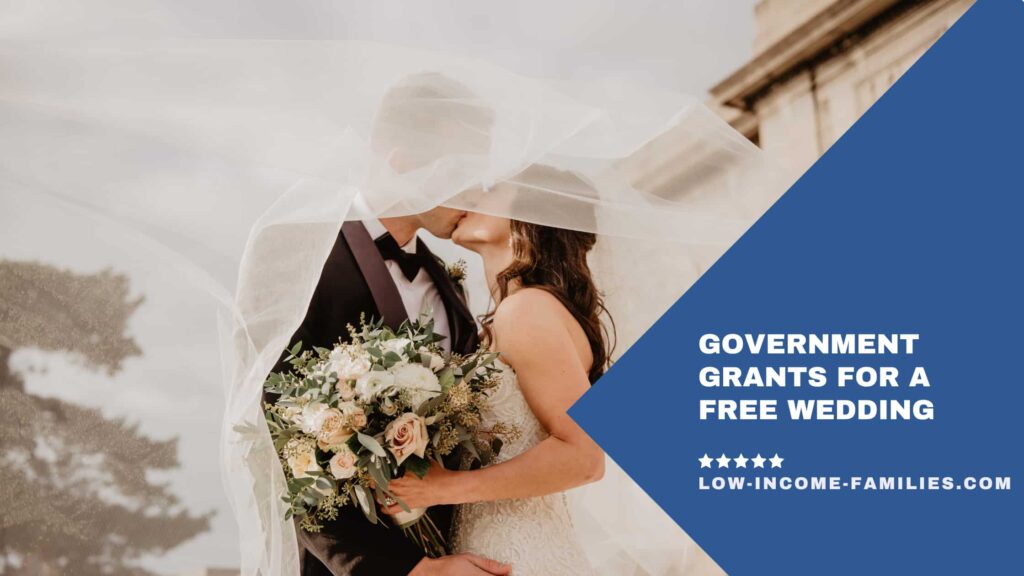In the ever-evolving landscape of music education, grants for nonprofits stand as beacons of hope, fostering the growth of musical talent and knowledge within communities.
These grants provide crucial financial support to nonprofit organizations dedicated to enriching lives through music.
As we delve into the realm of music education grants for nonprofits in 2025, it’s evident that these opportunities continue to play a pivotal role in ensuring that economic barriers do not hinder access to music education.
Nonprofit organizations dedicated to music education often face significant financial challenges in their efforts to provide quality instruction, resources, and opportunities to aspiring musicians, particularly those from underserved communities.
However, through the availability of music education grants for nonprofits, these organizations can overcome financial constraints and expand their reach, thereby making a meaningful impact on individuals’ lives through the power of music.
In the current landscape, the importance of music education extends beyond mere skill development; it encompasses personal growth, cultural enrichment, and community engagement.
Through structured music programs, workshops, performances, and outreach initiatives, nonprofit organizations contribute to the holistic development of individuals while fostering a deeper appreciation for music within society.
In this article, we will explore the significance of these grants, the eligibility criteria for nonprofit organizations to qualify for them, the application process, and the diverse array of opportunities available in the field of music education.
By delving into these aspects, we aim to provide insights into how music education grants for nonprofits serve as catalysts for positive change, empowering organizations to fulfill their mission of making music accessible to all, regardless of socio-economic background.
What Are Grants for Musicians?
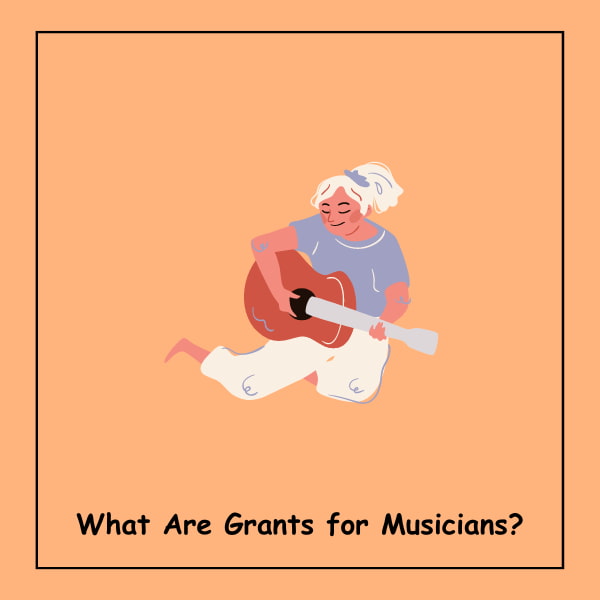
Grants for musicians serve as crucial lifelines within the music industry, offering financial support to individuals or organizations pursuing diverse musical endeavors.
These grants are designed to fuel creativity, innovation, and artistic growth across various facets of the music landscape.
In essence, grants for musicians function as monetary awards bestowed upon recipients to fund specific projects, initiatives, or activities related to their musical pursuits.
These endeavors may range from recording albums and producing music videos to composing new works, organizing concerts, or conducting educational workshops.
Additionally, grants may support research endeavors, instrument acquisition, or participation in music festivals and competitions.
One of the distinguishing features of grants is their non-repayable nature, which distinguishes them from loans.
Unlike loans that entail repayment with interest, grants offer financial assistance without the burden of debt, thereby alleviating the financial strain often faced by emerging and independent musicians.
Moreover, grants for musicians play a pivotal role in fostering artistic development and advancing career trajectories.
By providing financial resources, grants enable musicians to explore new creative avenues, refine their skills, and elevate their artistic output.
They empower individuals to pursue ambitious projects that may not be feasible through personal funds alone, thereby expanding artistic horizons and pushing the boundaries of musical expression.
Furthermore, grants for musicians contribute to the vibrancy and diversity of the music ecosystem by supporting artists from various backgrounds, genres, and disciplines.
They serve as catalysts for innovation, encouraging experimentation and exploration within the ever-evolving landscape of music.
In essence, grants for musicians represent more than just financial assistance; they embody a commitment to nurturing talent, fostering creativity, and enriching cultural life through the power of music.
By providing opportunities for growth, collaboration, and artistic exploration, grants empower musicians to realize their full potential and make meaningful contributions to the music community and beyond.
What Are The Eligibility Criteria To Qualify For Music Education Grants For Nonprofits?
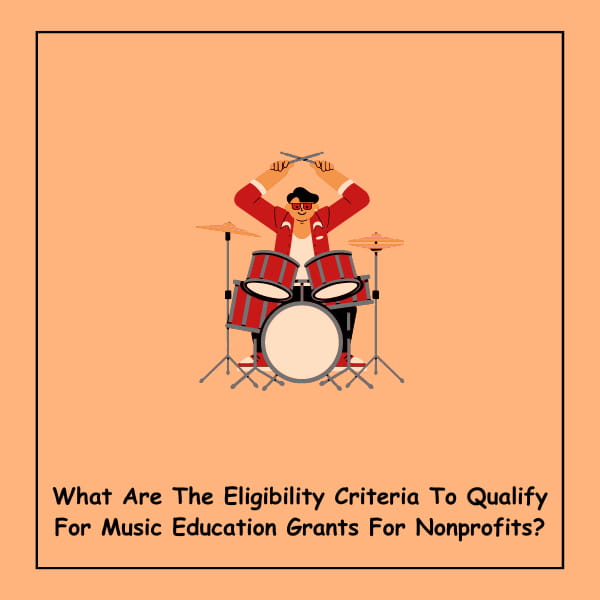
1. Nonprofit Status Verification:
- The first and foremost criterion for qualifying for music education grants for nonprofits is verifying the organization’s nonprofit status.
- Grant providers typically require documentation proving the organization’s legal recognition as a nonprofit entity.
- This verification ensures that grant funds are allocated to organizations committed to serving the public good rather than for-profit entities.
2. Alignment with Music Education Goals:
- Grant-seeking organizations must demonstrate alignment with the goals and objectives of music education.
- This involves articulating a clear mission statement that underscores the organization’s dedication to advancing music education initiatives.
- Whether through formal instructional programs, community outreach efforts, or other related activities, organizations must illustrate their commitment to promoting musical literacy, fostering artistic growth, and enhancing access to music education.
3. Demonstrated Financial Need:
- Grant providers often prioritize supporting organizations facing financial challenges or operating within economically disadvantaged communities.
- As such, demonstrating financial need is a critical aspect of qualifying for music education grants.
- Applicants may be required to submit financial statements, budgetary information, or other documentation to substantiate their financial circumstances and justify their eligibility for grant funding.
4. Compelling Proposal:
- Crafting a comprehensive and well-defined proposal is essential for demonstrating eligibility and securing music education grants.
- Applicants must outline their objectives, methodologies, anticipated outcomes, and plans for utilizing grant funds effectively and efficiently.
- Emphasizing the potential impact of proposed initiatives on enhancing music education access, quality, and inclusivity can bolster the organization’s eligibility and strengthen its case for funding consideration.
How Do You Apply for Music Education Grants for Nonprofit Organizations?
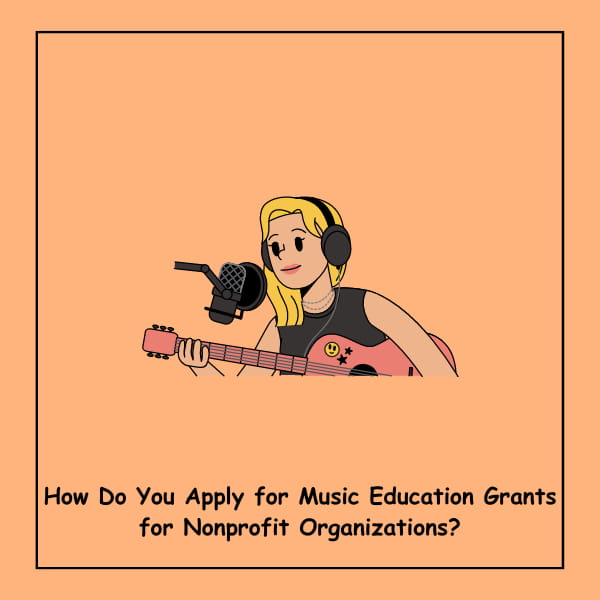
1. Research About the Available Opportunities:
- The first step in applying for music education grants involves conducting thorough research to identify available funding opportunities that align with the organization’s mission and objectives.
- Grant databases, foundation directories, and philanthropic organizations’ websites serve as valuable resources for identifying potential funding sources tailored to music education initiatives.
2. Define Your Program:
- Once suitable grant opportunities have been identified, organizations must define their music education program with clarity and precision.
- This involves outlining the program’s goals, target audience, activities, and expected outcomes.
- Articulating a compelling narrative that highlights the program’s significance and potential impact can enhance the organization’s competitiveness during the grant application process.
3. Develop a Detailed Budget:
- Developing a detailed budget is essential for demonstrating the feasibility and sustainability of the proposed music education program.
- Organizations must accurately estimate the costs associated with program implementation, including personnel expenses, materials and supplies, venue rental fees, and other relevant expenditures.
- A well-structured budget demonstrates fiscal responsibility and enhances the organization’s credibility in the eyes of grant providers.
4. Follow Application Guidelines and Provide Supporting Materials:
- Adhering to application guidelines and providing all required supporting materials are crucial steps in the grant application process.
- Organizations must carefully review the instructions provided by grant providers and ensure that their application complies with specified formatting requirements, submission deadlines, and eligibility criteria.
- Additionally, submitting supplemental materials such as organizational profiles, mission statements, project proposals, and financial documents strengthens the application and provides a comprehensive overview of the organization’s capacity and readiness to undertake the proposed music education program.
5. Submit the Application and Follow-up:
- Once the application is complete, organizations should submit it according to the specified submission method and deadline.
- Following up with the grant provider to confirm receipt of the application and inquire about the timeline for review and decision-making is recommended.
- In the event of any additional information or clarification requests from the grant provider, prompt and transparent communication is essential to ensure a smooth application process.
What Are The Available Music Education Grants For Nonprofit Organizations?
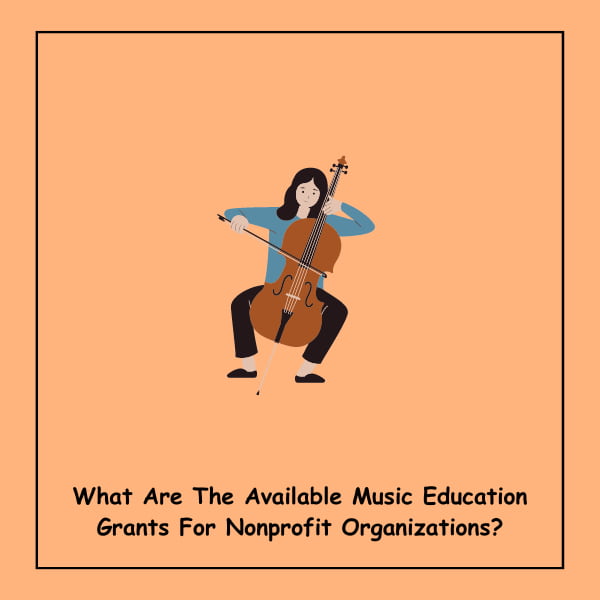
- National Endowment For The Arts (NEA): The National Endowment for the Arts offers a range of grants to support music education initiatives conducted by nonprofit organizations. These grants aim to promote artistic excellence, foster creativity, and expand access to music education across diverse communities.
- Associated Chamber Music Players (ACMP) Grant: The ACMP Grant provides funding opportunities for nonprofit organizations focused on chamber music education and performance. Grants may support educational programs, workshops, masterclasses, and community outreach efforts aimed at promoting chamber music appreciation and participation.
- BMI Foundation: The BMI Foundation offers grants to nonprofit organizations dedicated to supporting music education, songwriting, and composition. These grants fund a variety of educational initiatives, including music scholarships, composition competitions, and educational outreach programs.
- Guitar Center Music Foundation: The Guitar Center Music Foundation provides grants to nonprofit organizations that support music education and music-making initiatives. Grants may be used to purchase musical instruments, equipment, and resources to enhance music education programs in schools and communities.
- Grammy Foundation: The Grammy Foundation offers grants to nonprofit organizations that promote music education and cultural preservation. These grants support a wide range of initiatives, including music workshops, artist residencies, music camps, and educational outreach programs.
- Mid-Atlantic Arts Foundation: The Mid-Atlantic Arts Foundation provides grants to nonprofit organizations in the Mid-Atlantic region that support music education and cultural exchange. Grants may fund artist residencies, educational workshops, professional development opportunities, and collaborative projects.
- Fender Music Foundation Grant: The Fender Music Foundation offers grants to nonprofit organizations that provide music education programs for underserved communities. Grants may support instrument donations, music classes, workshops, and other educational initiatives aimed at empowering individuals through music.
- Education Advancing After School Grants By Charles Stewart Mott Foundation: The Charles Stewart Mott Foundation offers grants to nonprofit organizations that provide after-school music education programs for children and youth. These grants aim to enhance academic achievement, foster creativity, and promote positive youth development through music.
- We Are All Music Foundation Inc.: The We Are All Music Foundation provides grants to nonprofit organizations that support music education and advocacy efforts. Grants may fund music scholarships, educational workshops, instrument donations, and community outreach programs aimed at promoting music participation and appreciation.
- NAMM Foundation: The NAMM Foundation offers grants to nonprofit organizations that promote music education and advocacy. Grants may support music programs in schools, community music initiatives, music research projects, and professional development opportunities for music educators.
- D’addario Foundation: The D’addario Foundation provides grants to nonprofit organizations that support music education and music-making initiatives for underserved communities. Grants may fund instrument donations, music classes, workshops, and performance opportunities for individuals of all ages.
- ASCAP Foundation: The ASCAP Foundation offers grants to nonprofit organizations that support music education, songwriting, and composition. Grants may fund educational programs, scholarships, composition competitions, and music outreach initiatives aimed at fostering musical talent and creativity.
- Classics For Kids Foundation: The Classics For Kids Foundation provides grants to nonprofit organizations that support music education programs for children and youth. Grants may fund instrument purchases, music classes, educational materials, and concert experiences to inspire a lifelong love of music.
- Country Music Association Foundation: The Country Music Association Foundation offers grants to nonprofit organizations that support music education initiatives in schools and communities. Grants may fund music programs, teacher training, instrument purchases, and performance opportunities for aspiring musicians.
- Mr. Holland’s Opus Foundation: Mr. Holland’s Opus Foundation provides grants to nonprofit organizations that support music education programs in schools. Grants may fund instrument donations, music classes, professional development for music educators, and concert experiences for students.
- Looking Out Foundation: The Looking Out Foundation offers grants to nonprofit organizations that support music education and social justice initiatives. Grants may fund music programs for at-risk youth, music therapy programs, and advocacy efforts aimed at addressing social issues through music.
- McGraw Foundation Grant: The McGraw Foundation provides grants to nonprofit organizations that support music education and youth development programs. Grants may fund music scholarships, instrument donations, music camps, and community music initiatives aimed at empowering individuals through music.
- The Gladys Krieble Delmas Foundation: The Gladys Krieble Delmas Foundation offers grants to nonprofit organizations that support music education and cultural preservation efforts. Grants may fund music research projects, educational programs, and preservation initiatives aimed at promoting the study and appreciation of music.
- Sparkplug Foundation Grant: The Sparkplug Foundation provides grants to nonprofit organizations that support music education, arts advocacy, and social change initiatives. Grants may fund music programs for underserved communities, artist residencies, and grassroots organizing efforts aimed at leveraging music as a tool for positive social impact.
- Music Teachers National Association (MTNA): The Music Teachers National Association offers grants to nonprofit organizations that support music education programs for students and music educators. Grants may fund professional development opportunities, music competitions, and educational resources to enhance music instruction and learning experiences.
- VH1 Save The Music Foundation: VH1 Save The Music Foundation provides grants to nonprofit organizations that support music education programs in public schools. Grants may fund instrument donations, music classes, curriculum development, and advocacy efforts aimed at restoring and preserving music education opportunities for students.
- The Presser Foundation: The Presser Foundation offers grants to nonprofit organizations that support music education and performance initiatives. Grants may fund music scholarships, instrument purchases, educational programs, and performance opportunities for emerging musicians.
These diverse funding opportunities enable nonprofit organizations to advance their mission of promoting music education, fostering artistic expression, and enriching communities through the power of music.
By leveraging these grants, organizations can expand access to music education, empower individuals through musical learning experiences, and contribute to the cultural vibrancy of society.
How to Do Music Grants Work?
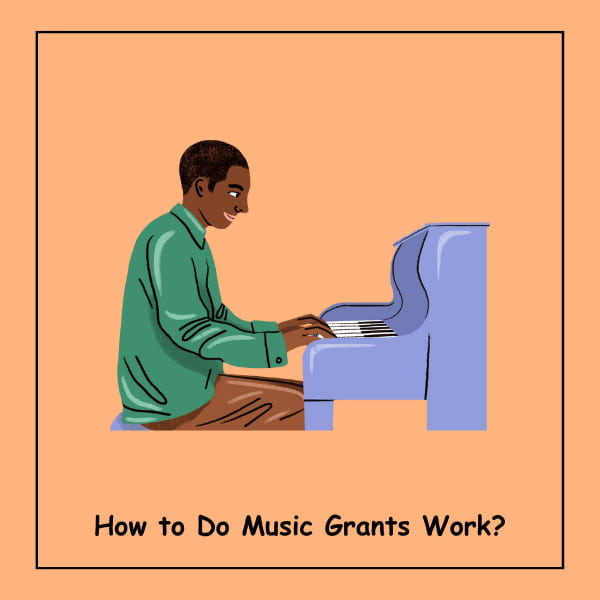
Understanding how music grants operate is essential for individuals and organizations seeking financial support to further their musical endeavors.
These grants function as financial resources provided by grant-making entities to support specific projects, initiatives, or endeavors within the realm of music.
The process of awarding music grants typically begins with the announcement of grant opportunities by grant-making organizations or institutions.
These announcements may outline the eligibility criteria, application requirements, funding priorities, and deadlines for submitting grant proposals.
Interested applicants are then required to prepare and submit grant proposals detailing their proposed projects, objectives, methodologies, and budgetary requirements.
Grant proposals often undergo rigorous evaluation by review panels or committees comprised of experts in the field of music, arts administration, or related disciplines.
During the review process, grant proposals are assessed based on various criteria, including artistic merit, feasibility, innovation, community impact, and alignment with the funding priorities of the grant-making organization.
Proposals demonstrating exceptional merit and potential for positive impact are considered for funding.
Once grant recipients are selected, grant funds are disbursed to support the implementation of the proposed projects or initiatives.
These funds may cover expenses such as artist fees, production costs, venue rentals, equipment purchases, educational materials, and administrative overhead.
Throughout the grant period, recipients are typically required to adhere to specific reporting requirements, which may include submitting progress reports, financial statements, and documentation of project outcomes.
Grant-making organizations use these reports to monitor the use of grant funds, evaluate project effectiveness, and ensure accountability and transparency.
By providing financial support, mentorship, and resources to individuals and organizations within the music community, music grants play a vital role in fostering artistic excellence, promoting cultural enrichment, and advancing the music industry’s overall growth and sustainability.
Conclusion
In conclusion, the impact of music education grants for nonprofits extends far beyond the financial assistance they provide.
These grants serve as catalysts for innovation, creativity, and community engagement, empowering individuals and organizations to realize their artistic visions and make meaningful contributions to the cultural landscape.
By leveraging music grants effectively, nonprofit organizations can expand access to music education, cultivate talent, and foster a lifelong appreciation for music among diverse audiences.
As stewards of cultural heritage and agents of change, music grants play a vital role in shaping the future of music and enriching lives worldwide.
[the_ad id=”39205″]
Frequently Asked Questions (FAQ):
What Is a Music Education Grant for Nonprofits?
A music education grant for nonprofits is a financial award provided to nonprofit organizations dedicated to promoting and enhancing music education. These grants support various initiatives, including instructional programs, community outreach, workshops, and performances.
Why Are Music Education Grants Important for Nonprofits?
Music education grants are crucial for nonprofits as they provide essential financial support, enabling organizations to overcome economic barriers and expand their reach. These grants empower nonprofits to fulfill their mission of making music accessible to all, regardless of socio-economic backgrounds.
What Types of Activities Do Music Education Grants Typically Fund?
Music education grants may fund a wide range of activities, including formal instructional programs, workshops, masterclasses, community outreach initiatives, instrument purchases, educational materials, and performances.
How Can a Nonprofit Organization Qualify for a Music Education Grant?
Nonprofit organizations must typically verify their nonprofit status, demonstrate alignment with music education goals, show financial need, and submit a compelling proposal outlining their objectives and plans for utilizing grant funds effectively.
Are There Specific Eligibility Criteria for Nonprofit Status Verification?
Yes, organizations need to provide documentation proving their legal recognition as a nonprofit entity. This ensures that grant funds are directed to organizations committed to serving the public good.
What Are Some Common Sources for Finding Music Education Grants?
Common sources include government agencies, foundations, philanthropic organizations, and music-related associations. Online databases, foundation directories, and the websites of grant-making entities are valuable resources for identifying available opportunities.
How Should a Nonprofit Organization Prepare for a Music Education Grant Application?
Preparation involves defining the music education program clearly, developing a detailed budget, and ensuring compliance with application guidelines. Organizations should also provide supporting materials such as mission statements, project proposals, and financial documents.
Can Individuals Apply for Music Education Grants, or Are They Exclusively for Organizations?
While some grants may be available for individuals, many music education grants are designed for nonprofit organizations. Individuals may explore scholarships or specific grants targeting individual musicians or educators.
What Happens After a Nonprofit Organization Receives a Music Education Grant?
After receiving a grant, organizations are typically required to adhere to reporting requirements, submitting progress reports, financial statements, and documentation of project outcomes. This helps grant providers monitor the use of funds and evaluate project effectiveness.
Are There Restrictions on How Organizations Can Use Music Education Grant Funds?
Grant providers usually specify the eligible expenses, which may include personnel costs, materials, venue rentals, and equipment purchases related to the proposed music education program. Organizations are expected to use funds in accordance with the approved budget and project plan.



